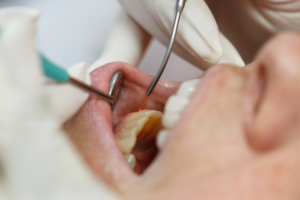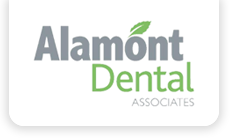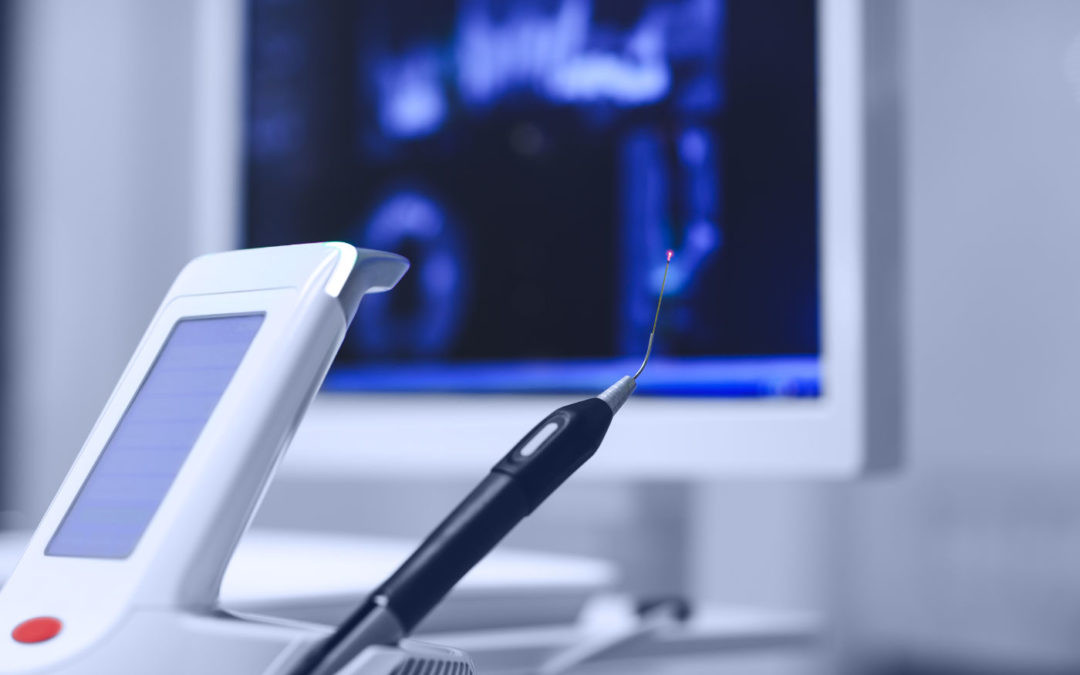Laser gum treatment is a modern approach to treating gum disease and disorders. Laser treatments are less invasive and easier to recover from. There is less risk of infection and a higher success rate. Read on to find out more about these disease and the laser treatments offered by Alamont Dental Associates.
What are periodontal diseases and gum disorders?
Periodontal disease, more commonly known as gum disease, covers a wide range of conditions. Bacterial infections of the gums usually cause the diseases. Early signs of periodontal disease are easily bleeding gums and loose teeth. Untreated gum disease can result in tooth loss, bone loss, tissues loss, and even more serious conditions like heart disease or diabetes.
If you’re experiencing gingivitis (inflammation of the gums), it’s important to be checked out as soon as possible. Gingivitis can be caused by certain illnesses or medications, not brushing and flossing, a family history of gum problems, smoking, and many other issues. Gingivitis is often treatable but more serious periodontal diseases can occur if the underlying causes aren’t addressed.
 The most common periodontal procedures
The most common periodontal procedures
Typical periodontal care consists of cleaning plaque off the teeth and keeping gums strong.
Periodontal Scaling
A deep cleaning to remove built up plaque and tartar from the teeth and below the gum line is the most common periodontal procedure . When this bacteria is left uncleaned it can create “pockets” in the gums that will fill with more bacteria and cause deeper decay. Scaling is the act of scraping out these pockets to prevent the bacteria in the pockets from spreading.
Root Planing
Once the plaque is scaled the roots of the teeth are then “planed” to smooth out the surface of the tooth around the gum. This gives the scaled gums a smoother surface to adhere to and speeds up the process of the gums reattaching themselves to the teeth and sealing up the pockets.
Periodontal Grafting
Over time the gums can recede. This causes many problems including sensitivity, increased plaque buildup, even tooth loss. A gum graft procedure is a simple surgery that removes healthy gum tissue from other parts of the mouth and uses it to patch up the receded gums. This results in stronger gums and also helps give you a better smile!
Advanced Periodontics
There have been many advancements in the field of periodontics since the 1990s. Of note is Laser-Assisted New Attachment Procedure (LANAP), a gum disease treatment that uses a precision laser to treat the gums. LANAP is the only FDA-approved laser based treatment for periodontal disease and offers regenerative periodontal therapy.
There are many benefits to using lasers in periodontal care! These procedures are less invasive and have quicker recovery times. There is less risk of infection and a higher success rate. Surprisingly, these advanced techniques can also save you money! Traditional surgeries usually require several sessions whereas laser appointments can often be finished in a single session.
Does laser gum surgery hurt?
Actually the likelihood of any pain is less than some traditional gum surgery, which often requires cutting with sharp tools. The laser used in LANAP is relatively pain free and local anesthetic is also used just in case.
Laser gum treatment aftercare
As with any surgery, you’ll want to take it easy after having the LANAP procedure. Try not to touch the affected area and clean up any blood spotting that occurs. Watch what you eat and drink so you don’t cause infections or other issues. Take all prescribed antibiotics. Refrain from smoking, vaping, or using any other tobacco substance for at least a week to prevent complications. Contact your dental provider if you have questions about your healing.
At Alamont Dental Associates we specialize in LANAP laser procedures for preventing and treating periodontal diseases. Contact us today if you’re ready to see the difference that laser treatments can have for your periodontic care.
Our Practice
Alamont Dental Associates is a state-of-the-art dental facility. We are committed to providing comprehensive diagnostics, treatment planning, and clinical care for the entire family.
Patient Reviews
"Called Monday, in on Tuesday!! Everyone friendly and helpful. The dentist was the best, caring, gentle, great chair-side manner!"


